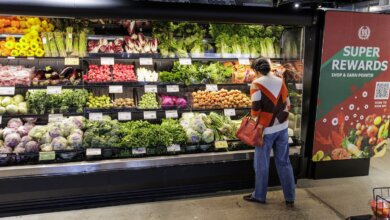Why Wholesale Food Suppliers Are the Backbone of Retail Success
Introduction: The Unsung Heroes Behind Every Full Shelf
When you walk into a supermarket or open your favorite food delivery app, it’s easy to assume that products just appear. But every bottle of sauce, bag of flour, or box of frozen veggies is the result of a well-oiled supply chain—and at its center are wholesale food suppliers.
They don’t get flashy ad campaigns or loyalty points, but without them, the retail world would come to a screeching halt. If you’re running a restaurant, grocery store, or online food business, the wholesale food supplier you choose determines your reliability, pricing, and ultimately, your brand reputation.
Let’s explore why these suppliers are more than just vendors—they’re true strategic partners in retail success.
What Exactly Is a Wholesale Food Supplier?
A wholesale food supplier sources products in large quantities from manufacturers or producers and sells them in bulk to retailers or food service businesses. Unlike retail distributors that might specialize in specific brands or regions, wholesalers tend to offer a broader range of goods across categories—dry, frozen, fresh, organic, or ethnic items.
These suppliers help reduce the gap between production and consumer access by:
- Aggregating inventory from various sources
- Offering flexible purchase quantities
- Managing storage and transport
Their role is especially crucial for small to mid-sized retailers who don’t have the scale or capital to deal directly with producers or large-scale distributors.
Reference: For a breakdown of wholesaler roles in the food ecosystem, read this insight from Food Logistics.
Retail Runs on Reliable Supply Chains
Retail, especially in the food industry, is a high-stakes game where timing is everything. A late shipment of dairy, spoiled produce, or a delay in packaging goods can ripple across your entire operation—causing stockouts, customer complaints, and even health risks.
Wholesale suppliers form the core of your supply chain’s dependability. The best ones:
- Offer consistent delivery schedules
- Maintain refrigerated and temperature-controlled logistics
- Adjust to seasonality and demand fluctuations
- Communicate inventory changes proactively
This reliability isn’t just about logistics—it’s about your reputation as a business. As outlined by Supply Chain Digital, dependable supply partners reduce business disruptions and enhance operational resilience.
Lower Costs, Higher Margins
Let’s face it: one of the main reasons businesses turn to wholesalers is cost efficiency.
Buying in bulk drives down unit costs significantly, allowing you to maintain competitive pricing while preserving healthy profit margins. For example:
- A local deli might save 15–30% on ingredients by sourcing through a wholesaler versus small-scale vendors.
- Supermarkets get access to tiered discounts based on volume, helping them run profitable promotions without cutting into margins.
Additionally, long-term partnerships with suppliers often open the door to:
- Volume discounts
- Early payment benefits
- Custom packaging or private label options
This pricing flexibility is a major reason why wholesalers remain the backbone of both small independent stores and major chains alike.
Suppliers Help You Scale
Thinking of opening a second store? Expanding into online retail or increasing your product range?
The right wholesale food supplier can scale with you—and that’s a game-changer. They’re not just delivering food; they’re adapting to your evolving needs.
Growth-friendly wholesalers offer:
- Scalable logistics and product variety
- Flexible Minimum Order Quantities (MOQs)
- Real-time stock integration with your systems
Consistency Builds Customer Trust
Imagine ordering a product that tastes different every week. Or constantly being out of your customers’ favorite snack.
Inconsistent supply equals broken trust. And in food retail, trust is everything.
Wholesale suppliers that offer consistent product quality help you build:
- Brand loyalty
- Positive customer reviews
- Stable repeat business
If your shelf, menu, or catalog changes randomly due to supplier unreliability, customers start to look elsewhere. This is especially critical for businesses offering specialty items like vegan snacks, gluten-free products, or ethnic food staples where substitution isn’t easy.
Quality Assurance—Because Food Safety Is Non-Negotiable
In the food industry, even one slip in quality control can have devastating consequences—from recalls to public backlash. That’s why top-tier wholesale suppliers follow stringent quality and safety protocols, including:
- HACCP (Hazard Analysis Critical Control Point)
- USDA Organic or EU Organic certification
- Kosher, Halal, or Non-GMO verification
These certifications aren’t just for show—they protect your brand and your customers.
Certifications Speak Volumes
When vetting a supplier, certifications are your shortcut to trust. They indicate not only product safety but ethical and sustainable sourcing too.
Look for:
- ISO 22000 (food safety management)
- Fair Trade Certified
- BRC Global Standards
This helps not just with consumer confidence, but also in entering certain export markets where certifications are mandatory.
The Right Supplier Saves You Time
Time is your most valuable asset. And an inefficient supplier can eat up hours with missed deliveries, miscommunication, or constant follow-ups.
Reliable wholesale food suppliers minimize this waste by:
- Offering transparent digital ordering systems
- Automating reorders through inventory sync
- Providing real-time delivery tracking
According to a report by McKinsey, digitizing procurement with reliable suppliers can reduce supply chain-related delays by up to 30%.
Tech-Savvy Suppliers Give You an Edge
Gone are the days when you faxed over orders. Leading suppliers now offer:
- Online dashboards
- Real-time inventory visibility
- API integrations for inventory management systems
- Mobile apps for on-the-go reordering
If your supplier isn’t embracing digital transformation, they might be holding your business back.
A Strategic Partner, Not Just a Vendor
Think of your supplier as more than a transaction point. The best wholesale food suppliers act as advisors, collaborators, and even trend forecasters.
They might notify you of upcoming shortages, suggest seasonal products, or help you navigate cost changes due to global supply shifts. That level of involvement makes them an extension of your team.
As Forbes puts it: “Treating suppliers like partners fosters transparency, innovation, and mutual growth.”
Conclusion: Choose the Right Backbone
Wholesale food suppliers may not be customer-facing, but they define your ability to serve those customers. They affect your pricing, your product quality, your time, and even your peace of mind.
Choosing the right supplier is not just a logistical decision—it’s a strategic one. It can be the difference between barely surviving and scaling smoothly.
So treat your suppliers like business partners, not just vendors. Invest in them the way they invest in you.
Looking to stock up on premium food and drinks? Discover unbeatable wholesale deals only at Thokmandee.
For more informational blogs, make sure to visit TheGlobalNewz.com — your go-to source for trending updates and insights!
FAQs
Q1: How do I verify if a wholesale food supplier is certified?
Check their website for certificates (HACCP, ISO, Organic, etc.), or ask them directly. You can also cross-check with the certifying agency like FDA.
Q2: What’s the average minimum order for food wholesalers?
It varies by supplier, but typically ranges from $250 to $1,000. Some may offer flexible MOQs for small businesses.
Q3: How often should I evaluate supplier performance?
Every 6–12 months. Track KPIs like delivery timeliness, order accuracy, and product quality.
Q4: Are wholesale prices always cheaper than distributors?
Generally, yes—but not always. Distributors may offer better deals if they specialize in certain brands or have exclusive rights.
Q5: What’s the best way to start a relationship with a new supplier?
Start small. Place a test order, check quality, review communication, and scale up as trust builds.




